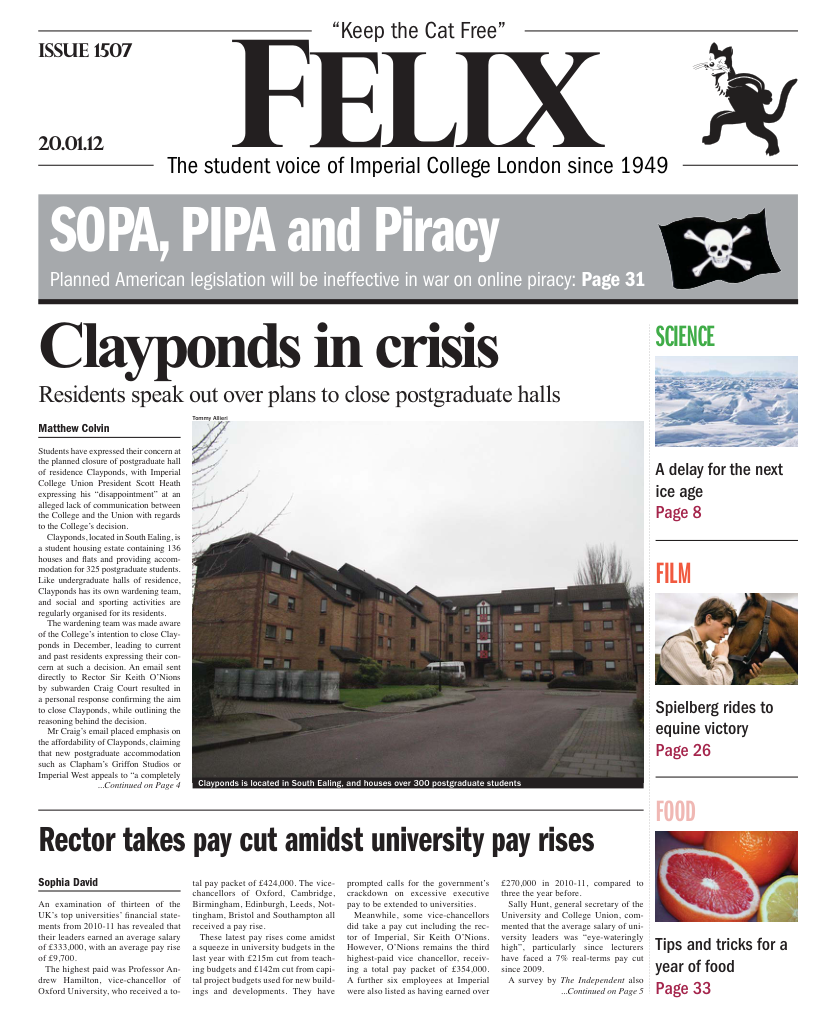New Year Resolution? Get Coding
Michael Cook suggests something new for us all to try this 2012 - fret not, coding's actually easier to pick up than you think!

I feel like Computer Science stands out from the other subjects at Imperial for a number of reasons, not all of them related to social ability or personal hygiene (I thought I’d open with a lazy joke to lure you in, forgive me). Like all subjects taught at Imperial, the course contains a lot of high-level, greatly complex areas of study that are entirely inaccessible to outsiders. Yet there is a core to the course that is not like this, a core that is dressed up in the garb of ‘higher education’ but is in fact hugely useful in everyday life, and surprisingly accessible to those with no grounding in computer science at all.
There are a lot of reasons for this, foremostly a simple lack of computer science education in most countries’ education syllabi. Those interested in the education debate might be familiar with last year’s review published by the government looking into the state of computer science education, training and support in the UK. The report read like a lazily-written homework assignment by someone who couldn’t care less about its content, which it broadly was. They noted a lack of computer science content, but gave no solutions.
What is important to realise about this is that even when the situation changes in our schools (for it surely must eventually) those of you reading this in Felix as it goes to press can never benefit from such a change. You are locked out of that education forever, but you exist in a world of increasing technological complexity, where those with knowledge of programming, the internet, operating systems and electronics are increasingly distancing themselves from those without that knowledge.
The average Imperial student ... is perfectly positioned to pick up and learn how to program
This distancing is more subtle in some places than others. Watch an episode of 24 and the CTU technology ‘experts’ will explain a situation to their superiors using unnecessary and intentionally confusing terms. They’re met with a stiff rebuke; ‘spare me the techno-babble’, ‘just give it to me in English!’, ‘I don’t need to know specifics!’ This presents a clear message to the viewer – you don’t understand what they’re doing, you never will, and you don’t need to.
The hacking stories of last year (websites, rather than phones) have their perpetrators portrayed as mysterious, preternaturally intelligent individuals who exist in a confusing world of sophisticated technology and complicated lists of information. In reality, many of the attacks carried out last year on high-profile websites were little more sophisticated than when my mother downloads iTunes, installs it, and uses it to play music. Read a BBC news article on the matter, however, and you enter a cyber-Tolkien world where hackers wield a magical power that you don’t, and never can, understand.
This is wrong. This is not the attitude to technology that should be spread. The world is becoming increasingly reliant on software and hardware, and we are encouraging the population to shy away from understanding it, rather than embracing it and learning to bend it to their own ends. The average Imperial student – intelligent, motivated and already working closely within the world of science – is perfectly positioned to pick up and learn how to program, how websites work, how data is stored, how adverts target users of certain websites, how bittorrent users can be identified and how the world around them works. Once people such as yourselves have embraced this, it will make it easier to pass the knowledge on to others, and turn around the trend of avoiding technological complexity.
And so to the nub of my article. I’m not one for resolutions generally, but this year I implore every one of you to learn something new about the technology that you use every day. If you wish to learn how to program, the website CodeYear can help you with regular lectures, resources and assistance. Imperial’s Robotics, Gaming, Wikipedia, and other tech-related societies are welcoming and well-informed. As any computer scientist can attest, you cannot know enough about technology. But the more you know, the better-equipped you’ll be for the future.







